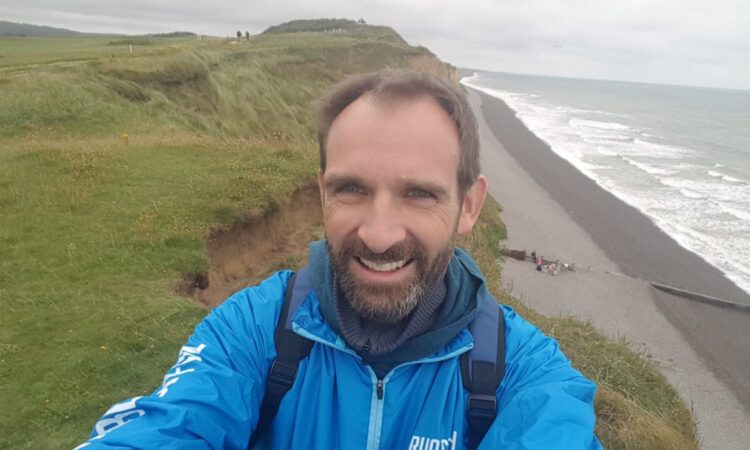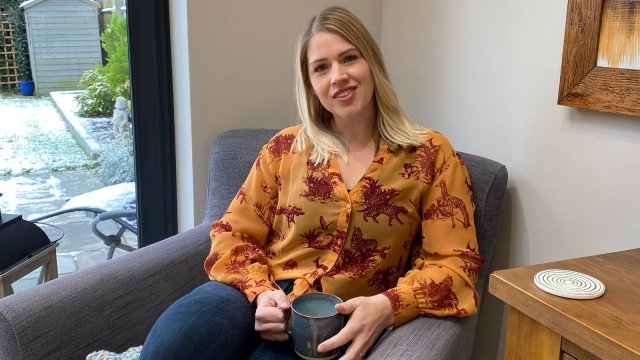
In our How I Manage My Money series we aim to find out how people in the UK and abroad are spending, saving and investing money to meet their costs and achieve their goals.
This week we speak to David Cox, 54, from Stevenage, who lives in the French Alps with his wife, Sally, 49. The couple have two grown-up children. David retired at the age of 47 after a career in finance which took him all over the world. Travel and sports enthusiast David is currently living on income from 11 rental properties in the UK.
Monthly budget
Our monthly income: Our investments are mainly made up of two types, buy-to-let properties and exchange-traded funds (ETFs). So far, we have only used money from the property rentals to live off. We haven’t touched the ETFs and any money they make gets automatically reinvested.
After expenses and tax, the average annual income from our buy-to-let properties is £58,000, which is more than £4,800 per month.
Our monthly outgoings: Groceries, £739; holidays and travel, £558; eating out, trips to coffee shops and going out; £560, hobbies like sports, crafting and French lessons; £432, gifts and charities, £507; council tax equivalent in France, £102; electric, water, heating and apartment complex fees, £399; car fuel, insurance, maintenance and tolls, £527; medical costs and wellness, £182; pets, £113; insurance policies, £20; broadband, £36; subscriptions like Netflix and Spotify, £42; mobile phones, £26; home furnishings and maintenance, £83; clothes and shoes, £80.
We typically spend around £55,000 a year.
The outgoings don’t include sums for our buy-to-let properties as these are treated as investments rather than part of our living costs.
I grew up in Stevenage and didn’t go to university. I completed a Business and Technology Education Council, or Btec, course in business and finance at college, and got my first job as an accounts clerk when I was 18, on £3,300 a year.
One day a week, the company would send me to college to get my professional accounting qualification. It took me a number of years to complete, but this qualification enhanced my career and earning opportunities.
I spent many years working in finance roles all over the world. I worked in Jamaica, Hong Kong, South Africa and the UAE. I was first promoted to a finance director role at the end of 2004 and I think the salary was around £70,000. I soon took on a similar role in Dubai, where, over time, my salary grew to a six-figure annual sum.
I’d never really thought too much about retiring early, but in January 2016 I was having a bad day at work. I walked back into my office, kicked the door shut and thought to myself: “Do I have to put up with this shit?” That evening, I gave this further thought and started crunching some numbers. I started to realise that perhaps I didn’t need to put up with it at all.
In March 2016 I handed in my notice to my employer. I’d enjoyed 99 per cent of my career, but had enough. I had my last day at work in June and worked right up until 5pm.
A few months later, my employer persuaded me to return on a part-time consultancy contract. It was a mistake on my part, but only lasted four months.
I was 47 when I retired for good. It felt awesome! The feeling of stress leaving my shoulders felt almost physical, which was a wonderful feeling. I didn’t find it daunting and was excited to start a new phase of my life. The first few months felt like a holiday, but I knew I needed to set myself activities and routines to give my days structure and purpose. In the first few weeks, I spent most of my time skiing and cycling.
I took a belated gap year in 2018. Sally and I spent four months in Asia and Australia and three months enjoying the ski season in France. The total cost of the trip to Asia and Australia, including everything we spent, was £22,560. We’ve been lucky enough to go to places like California, Costa Rica and Colombia since then. In the past seven years, our average annual spend on holidays and travel has been around £10,000.
I’m a fan of the Financial Independence, Retire Early (FIRE) movement and run a blog about early retirement. Money is still a taboo subject, but people in the FIRE movement talk about it openly, which is a good thing. I must say, my main priority was always ensuring my family was financially secure, rather than retiring early.
Sally and I purchased an apartment in a ski resort in the French Alps in 2016 for £437,000. It was an off-plan build, so was only completed in 2018. We intended to use the place for holidays, but ended up living here. Buying a bigger place would be more expensive to purchase and cost more to run and heat.
We purchased our first buy-to-let property in the UK in 2011. We have 11 buy-to-lets, with five in Cambridgeshire. A letting agent looks after them. The total rental income from the properties is around £58,000 a year after tax and expenses, but we’re selling one so it’ll soon be less. The income from the rental properties does feel a bit like a salary turning up in our bank account each month.
Investment-wise, we’ve got some low-cost exchange-traded funds and a five-year savings account with an interest rate of 5.85 per cent. We’ve also got some Premium Bonds.
Sally and I want our investments to continue providing an income which enables us to enjoy our retirement. I’m pretty confident the money won’t run out. We give 5 per cent of our annual income to charity, but are considering doubling this. My goal is to stay happy, healthy and active during my retirement and I’m looking forward to many more adventures overseas.
Want to take part in How I Manage My Money? Email [email protected]







